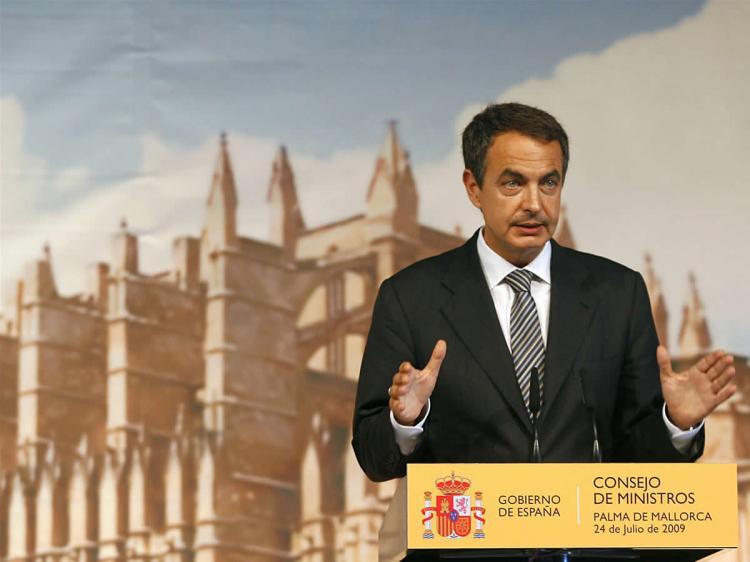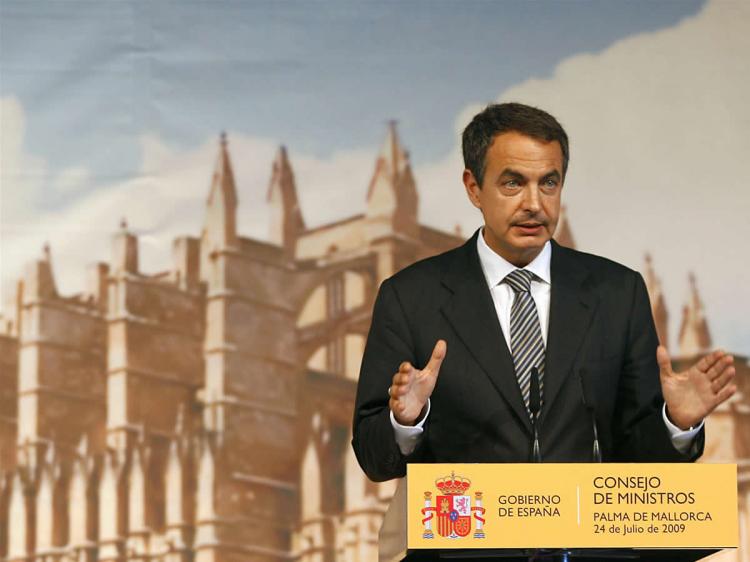Europeans Expect Layoffs to Get Worse
Most Europeans are concerned about losing their jobs, according to a new study by the European Commission.

Spanish Prime Minister Jose Luis Rodriguez Zapatero discusses the unemployment rate in Spain which is almost twice the eurozone average. Jaime Reina/AFP/Getty Images
|Updated:



